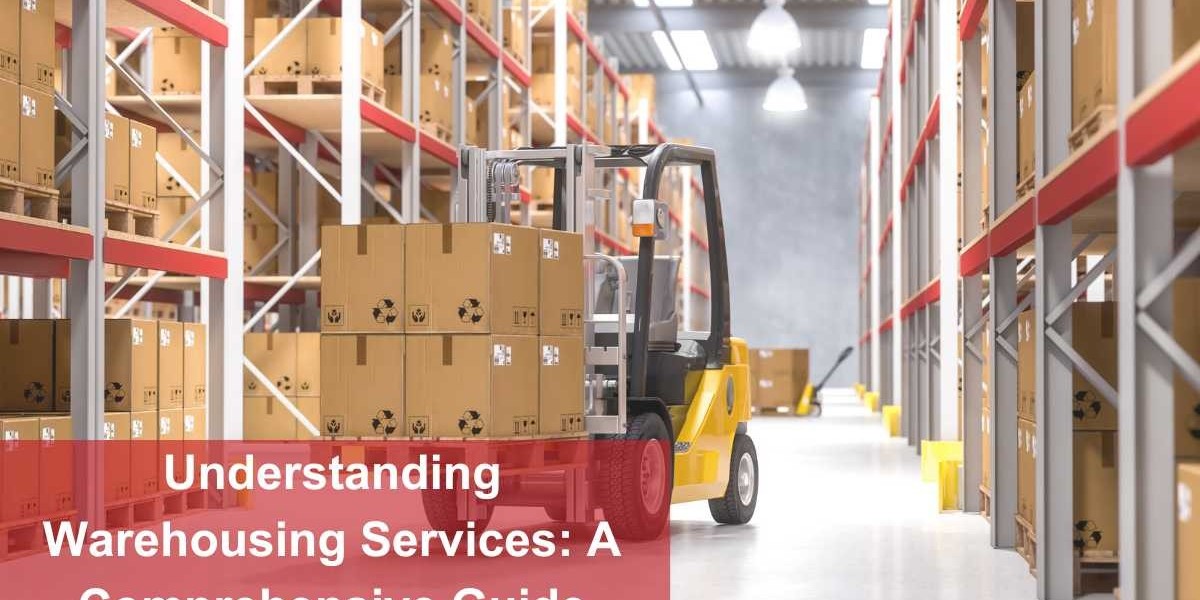Warehousing plays a crucial role in the supply chain, serving as a bridge between manufacturers and consumers. It’s more than just storing goods; it’s about managing and optimizing the flow of inventory to ensure businesses operate smoothly. In this article, we'll explore what warehousing services entail, their importance, and how they benefit businesses.
What Are Warehousing Services?
Warehousing services encompass a range of activities focused on the storage, handling, and management of goods within a warehouse. These services are essential for businesses that need to store large quantities of products before they are distributed to retailers, wholesalers, or directly to customers. Warehousing services typically include:
1. Storage Solutions
The primary function of warehousing is to provide a secure space for goods. Warehouses are equipped to store a wide variety of products, from raw materials to finished goods. Storage solutions can vary depending on the type of product, with options including:
- Racked Storage: Ideal for maximizing space, especially for palletized goods.
- Bulk Storage: Suitable for non-palletized items that are stored directly on the warehouse floor.
- Cold Storage: Necessary for perishable goods that require refrigeration, such as food and pharmaceuticals.
2. Inventory Management
Effective inventory management is a key component of warehousing services. This involves tracking the movement of goods in and out of the warehouse, maintaining optimal stock levels, and ensuring that products are available when needed. Modern warehouses often use advanced software systems, such as Warehouse Management Systems (WMS), to monitor inventory in real-time, reduce errors, and enhance efficiency.
3. Order Fulfillment
Warehousing services also include order fulfillment, which is the process of picking, packing, and shipping products to customers. This is a critical step in the supply chain, as it directly impacts customer satisfaction. Efficient order fulfillment services can help businesses meet delivery deadlines, reduce shipping costs, and improve overall customer experience.
4. Cross-Docking
Cross-docking is a service offered by some warehouses where goods are received from suppliers and immediately prepared for shipment to their final destination, without long-term storage. This reduces storage costs and speeds up the distribution process. Cross-docking is particularly useful for businesses dealing with perishable goods or high-demand products.
5. Value-Added Services
Many warehousing providers offer value-added services to meet specific business needs. These can include:
- Kitting and Assembly: Combining multiple products into a single package for sale.
- Labeling and Packaging: Customizing products with labels, barcodes, or special packaging.
- Quality Control: Inspecting products to ensure they meet quality standards before they are shipped.
6. Transportation and Logistics Support
Warehouses often work closely with transportation services to ensure the smooth movement of goods. This includes coordinating shipments, managing logistics, and even providing last-mile delivery. By integrating warehousing with transportation, businesses can streamline their supply chain operations and reduce costs.
The Importance of Warehousing Services
Warehousing services are vital for businesses across various industries. Here’s why:
1. Ensuring Business Continuity
Warehousing provides a buffer that allows businesses to store excess inventory, ensuring they can meet customer demand even during peak seasons or unexpected disruptions. This continuity is critical for maintaining a reliable supply chain.
2. Cost Efficiency
Storing products in a warehouse can be more cost-effective than other storage options. Warehousing services often include bulk storage rates, reducing the overall cost per unit. Additionally, by optimizing inventory management and reducing stockouts, businesses can minimize losses and maximize profits.
3. Enhanced Customer Service
With effective warehousing services, businesses can fulfill orders faster and more accurately, leading to higher customer satisfaction. Warehouses equipped with modern technology can process orders efficiently, ensuring timely deliveries and reducing the risk of errors.
4. Scalability
As businesses grow, so do their storage needs. Warehousing services offer scalable solutions that can accommodate increased inventory without requiring significant investment in additional infrastructure. This flexibility allows businesses to expand operations smoothly.
5. Risk Management
Warehousing services help mitigate risks associated with inventory storage. Warehouse logistics are equipped with security systems, climate control, and insurance to protect goods from theft, damage, or spoilage. This protection ensures that businesses do not suffer significant losses due to unforeseen events.
Real-World Example: The Role of Warehousing in E-commerce
The rapid growth of e-commerce has highlighted the importance of efficient warehousing services. For example, Amazon, one of the largest e-commerce companies in the world, relies heavily on its extensive network of warehouses, known as fulfillment centers, to manage its vast inventory and ensure quick delivery times.
Amazon’s warehouses are equipped with advanced technology, including robots that assist in picking and packing orders. This automation allows Amazon to process orders at an unprecedented speed, meeting customer expectations for fast shipping and reliable service.
Choosing the Right Warehousing Service Provider
Selecting the right warehousing service provider is crucial for businesses looking to optimize their supply chain. When choosing a provider, consider the following factors:
1. Location
The location of the warehouse is critical. A warehouse situated close to key markets or transportation hubs can reduce shipping times and costs. For example, AAJ Enterprises, with warehouses across India, including in Delhi, Sonipat, and Ghaziabad, offers strategic locations that benefit businesses operating in these regions.
2. Technology and Infrastructure
Ensure that the warehouse is equipped with the latest technology, such as WMS, to provide real-time inventory tracking and efficient order processing. The infrastructure should also support the specific storage needs of your products, whether they require cold storage, racking, or bulk storage.
3. Reputation and Reliability
Look for a warehousing provider with a proven track record of reliability and excellent customer service. Reviews, testimonials, and case studies can provide insights into the provider’s performance.
4. Cost and Flexibility
Evaluate the cost structure of the warehousing service provider, ensuring it aligns with your budget. Additionally, consider the flexibility of the service provider in accommodating your business’s changing needs, such as seasonal fluctuations in inventory.
Conclusion
Warehousing services are a cornerstone of effective supply chain management. From storage and inventory management to order fulfillment and logistics support, these services help businesses operate efficiently and meet customer demands. As businesses continue to grow and evolve, the importance of choosing the right warehousing partner cannot be overstated. By selecting a reliable provider that offers scalable, cost-effective solutions, businesses can enhance their operations, reduce risks, and ensure long-term success.








